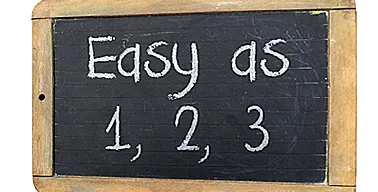The Weight of Change: Why It Feels Overwhelming

Embracing Change: Overcoming Stress and Finding Balance Through Organization Change is inevitable. Seasons shift, schedules evolve, and life introduces challenges and surprises—some welcome, others not. Whether it’s the arrival of fall or a major life event like job loss, a new baby, divorce, or even the death of a loved one, change brings with it a whirlwind of emotions. Anxiety, stress, and even grief can weigh us down, leaving us disoriented and overwhelmed. But here’s the truth: you can overcome the chaos of change. With intention and organization, you can navigate transitions, lighten your load, and move forward with clarity and confidence. The Weight of Change: Why It Feels Overwhelming Imagine life as a river, and you’re floating downstream in your own personal tube. Attached to you is a vest covered in carabiners, each holding a “clip” that represents something in your life—jobs, relationships, belongings, feelings, and responsibilities. As life progresses, clips get added: a new job, a promotion, a child starting soccer, or even joyful additions like buying a house or a jet ski. But without consciously removing clips that no longer serve you, the vest becomes unbearably heavy. Over time, the weight of these clips—good or bad—can pull you under, making it hard to stay afloat, let alone thrive. This is where intentionality and organization come in. To keep moving down life’s river and make room for the opportunities ahead, you must learn to unclip what’s weighing you down. How to Lighten the Load The key to managing change is knowing what to keep, what to release, and what to set aside for later. Here are actionable strategies to overcome stress and thrive during transitions: The River of Life: Keep Floating Toward Your Future Here’s the thing: life doesn’t wait upstream. The good things—the opportunities, growth, and joy—are waiting for you downstream. But to reach them, you need to keep moving. Imagine a future where your vest is lighter, your mind clearer, and your heart more open to new experiences. By removing the weight of unnecessary clips and creating space for what truly matters, you position yourself to thrive through life’s changes. Take the First Step Toward a Lighter Life Today is the day to take charge of your river. Change doesn’t have to overwhelm you. With focus, intention, and the courage to unclip what no longer serves you, you can overcome anxiety and stress, navigate transitions, and create space for the life you deserve. Start today—lighten your vest and keep floating toward the amazing future that’s waiting for you. You do have some control over how you experience the change. Our experience is 99% perception and 1% reality. Remember, even the hardest changes can bring new life and opportunities. Make sure you take off those clips to keep floating down the river to find them.
What EXACTLY does a Professional Organizer do?

The Organizing industry is truly a hidden gem. I couldn’t believe I didn’t know the industry existed until a couple years ago. Of course, I was actively avoiding places like The Container Store. I knew if I set foot in there it would be all over. Poverty would follow. I knew I would love it and I’d go broke in 6 months. Truly. I had never been in the store until after I decided to go into this profession. And yes, I love it. In the crazy world we live in, there are endless ways to help our clients. Most folks are at full, or over, capacity trying to keep all the plates spinning with their day-to-day lives. How can they keep up? How can they learn all the processes and tricks to manage their lives more efficiently and reduce their stress? How do they know how to declutter a closet efficiently and thoroughly? Enter the organizing profession. You may have wondered how I ended up in this industry. The Business Analyst role did not entirely fit me. The analytical aspect as well as creating order was suitable. Mostly I was motivated with activities such as improving processes, streamlining and documenting procedures, and organizing online data. Then I had a conversation with a friend. We were talking about projects around the house and I was saying that I was doing some organizing and said something to the effect of, “I wish I could do this for a living! ” She said, “You can. That profession exists.” WHAT??!!!! (mind blown) And life has never been the same. During my research, I discovered there are several different national and international organizations that exist to support this industry. Who knew? One of their primary missions of these organizations is to get the word out that this industry exists and how our expertise changes lives. My research initially landed me at the NAPO (National Association of Professional Organizers) website. Here, as you can imagine, I relished every word and thought I discovered the “mother ship” for my people. Believe it or not, this is worldwide phenomenon. Other countries have national organizations as well like Canada, the UK – even if they spell it “organise”, and of course Japan (as many of us are familiar with Marie Kondo and her book about tidying – which really just means organizing.) There is an organization that supports organizers who are helping clients that are challenged with chronic disorganization. There is even an organization that seeks to unite the various national organizations worldwide called the International Federation of Professional Organizing Associations (IFPOA). Who knew, right? When I decided to become a Professional Organizer, I really didn’t understand the depth of the industry I was jumping into. My decision was based on my business-world skills, my natural bent (thanks Mom & Dad!), and life experiences of figuring stuff out while I managed my life and household. The industry thrilled me but I had to learn exactly what all is involved in helping others with their challenges. I found that there is A LOT more to this career than that meets the eye. The reach of our industry knows no bounds. It reminds me of physicians and how they have many specialties. Many organizers are generalists, but most also have specialties as well: hoarding, closet installs, garages, moves, residential, photos, ADHD/OCD, transition, time management, kitchens, eco-friendly, new moms….the list goes on and on. It’s funny that when you have an aptitude for something, you originally think that everyone must think like you do. I distinctly remember an experience of organizing with someone before I “turned pro”. I was thoroughly enjoying myself feeling pumped as I was getting more organized. I passed them in the hall and said, “Isn’t this fun?” to which they snarled, “No, it’s torture!” What? You may be thinking the same thing as you’re reading this. I get it. You don’t think organizing is fun. You hate it and find any excuse to do something different. We are all created differently. Thank goodness! When I have to do things involving say money, I look for all the distractions I can find. Squirrel! What Do Organizers Do?Some people think Organizers just put things away –like somebody’s mom (sorry I just had to). Others think we are administrative assistants, some think we plan events. The Merriam-Webster dictionary defines the word organize as “to arrange or order things so that they can be found or used easily and quickly : to put things into a particular arrangement or order”. That just barely touches on the industry. Currently, there are two main types of Organizers: Residential & Business. Business organizing focuses on positively impacting businesses. Taking on goals such as gaining efficiencies, streamlining workflow, improving paper and electronic files, and coaching are typical offerings. Residential focuses on the home. For the purposes of this blog, we’re focusing on residential organizing. I recently read an article about getting organized that basically told people the key is, “Things need to go where they need to go.” Well yes, but this doesn’t address the challenge many have in setting up an effective system of where things go. It doesn’t address busy lifestyles, multiple people in the same space, special needs, feelings of being overwhelmed or stuck. I could go on and on. I was really saddened by this person’s lack of understanding and compassion for the challenges of getting organized and staying organized. It reminds me of my bitmoji (app where the avatar looks like you). This brings up a basic philosophy in this industry: No judgment. Compassion and understanding are the tenants on which our industry is built. Most Organizers number one goal is to help. Does a personal trainer look down on someone 20 lbs overweight who wants to get healthier? Of course not or you wouldn’t hire them. Organizing is the same way. We exist to bring about desired change, to help our clients achieve their goals, to watch the excitement as their world expands and the fog lifts.
It’s Back-to-School Season: How to Stay Organized and Stress-Free

It’s Back-to-School Season: How to Stay Organized and Stress-Free It’s that time of year again—stores are decked out with flashy “Back to School” signs, and the aisles are packed with freshly minted school supplies. Schools are sending paperwork and forms for the upcoming year, and even a few leaves are starting to change color amidst the warm summer days. For many parents, this is a bittersweet time. You’ve enjoyed the slower pace and more time with your children, but the school bells are calling, and it’s time to gear up for a new season of learning and activities. Feeling overwhelmed? Take a deep breath. Now repeat after me: “I can get everything done at a reasonable pace, and we’ll have the best fall ever!” (Feel free to rinse and repeat as often as needed to stay calm.) Here are six guidelines to decrease your stress levels and help you stay organized this back-to-school season: 1. Focus on the Positive It all starts with your mindset. The transition to the school season will be smoother and more enjoyable if you set a positive tone. Kids love summer—it reminds us all of carefree childhood days, barbecues with neighbors, trips to the beach, and endless outdoor fun. But as summer fades, it’s time to focus on the exciting things fall brings. A mother’s mood often sets the tone for the household. Start talking about the fun activities ahead: brightly colored trees, trips to the apple orchard, or late-night bonfires. Highlight what makes fall special and use this optimism to guide your family through the transition. A positive mindset not only boosts morale but helps everyone embrace the change with enthusiasm. 2. Dominate Your Calendar There’s no one “right” way to manage your schedule—whether you prefer digital tools or a paper planner, find a system that works for you and stick with it. Take the time to write down every activity on your family’s calendar. Share this schedule with everyone in your household and, if possible, color-code activities for each family member. Start a list of carpool contacts and look ahead for potential conflicts. Planning ahead will save you the stress of last-minute surprises, like scrambling for a new pair of pants for tomorrow’s choir concert when you already have a packed evening. 3. Coordinate Dependencies Once your calendar is under control, you can focus on what needs to be done to support those activities. For example, if your daughter starts soccer in two weeks, check if her cleats still fit or need replacing. If two kids have games on the same night, start arranging rides now. By staying ahead of these logistical challenges, you’ll minimize stress and make activities more enjoyable for everyone. 4. Purchase School Supplies Early School supply lists often arrive early, but you can usually find them online even before that. Don’t wait until the last minute—shop early to avoid the frustration of sold-out items. Reflect on your past experiences. If shopping as a family was fun, do it again. If it was chaotic, consider taking one child at a time and turning it into a special “date” night. Adding a treat at the end can make the experience enjoyable and memorable. 5. Gently Adjust Sleep Schedules Summer often means late nights and lazy mornings, but fall’s structured routine will require an earlier start. Avoid the shock of a sudden change by gradually adjusting bedtimes and wake-up times in the weeks leading up to school. Shift schedules by 15 minutes each day to help your kids’ internal clocks adjust smoothly. This gradual approach makes the transition easier and ensures everyone feels well-rested for the first day. 6. Add Cushion and Grace to Your Schedule As much as possible, build flexibility into your schedule. Don’t overcommit your time or finances until you’re sure you can manage them. It takes time for families to adjust to the rhythm of a new school year. Be patient with yourself and your loved ones. After a few weeks, you’ll likely find your groove, with the sweet memories of summer in your rearview mirror. With a bit of planning, focus, and organization, you can ensure that your transition into the school year and fall activities is a smashing success. Here’s to a stress-free and exciting back-to-school season!
Tame Your Summer To-Do List: Simple Strategies to Get Things Done

“Tame Your Summer To-Do List: Simple Strategies to Get Things Done” Summer is a time of sunshine, relaxation—and sometimes, lingering to-do lists that just won’t quit. You know the ones: tasks like cleaning out a closet, moving plantings, or washing the windows. They resurface every summer, and you keep moving them from year to year. Eventually, you may scratch them off, undone, deciding they just didn’t fit into your schedule. Sometimes, removing tasks is freeing—reprioritizing can lift a weight off your shoulders. But other times, leaving those tasks undone feels defeating. They stare at you, a constant reminder of good intentions unmet. Frustration builds, and you start to feel like you’re not enough. Let’s change that. Here’s how to finally tackle those nagging tasks and have success with summer organizing. 1. Swallow the Frog Mark Twain famously wrote that if you know you have to eat a frog at some point during the day, it’s best to eat it first thing. Otherwise, you’ll spend all day dreading it. For those harder, time-consuming tasks, tackle them first thing in the morning when your energy is fresh. This clears the mental weight and creates momentum for the rest of your day. 2. Evaluate the Task Does this task really need to be done? This is about aligning your to-do list with your values. Every time you say “yes” to one task, you’re saying “no” to something else. If the task is optional, ask yourself: If not, give yourself permission to cross it off for good. 3. Schedule It For tasks that absolutely need to be done, but you’ve been avoiding, schedule them into your calendar. Treat them like an important appointment and protect that time from interruptions. 4. Prioritize Like a Pro A single long to-do list can feel overwhelming. Break it down into smaller, focused lists: This approach makes your list feel manageable and keeps you organized. 5. Create Incentives Unpleasant tasks are easier to tackle with a reward at the finish line. Plan something enjoyable to motivate yourself: Sometimes, knowing there’s something good waiting for you can be the push you need. 6. Set a Timer If the task feels daunting, set a timer—say, for 45 minutes. Work until the timer goes off, then take a short break (5–10 minutes) to recharge before diving back in. This technique keeps your mind fresh and prevents burnout, especially for repetitive or unpleasant tasks like cleaning. 7. Ask for Support Accountability can make all the difference. Ask a friend, family member, or colleague to check in on your progress. Knowing someone else is rooting for you can keep you motivated. Why It’s Worth It Getting those nagging tasks off your list can inspire you to tackle other areas of life. It frees your mind, creates space for new possibilities, and builds confidence. Summer is filled with opportunities—don’t let undone tasks weigh you down. With intentional thought, a few strategies, and maybe a little help, you can conquer your to-do list and feel the freedom that comes with completion. You’ve got this!